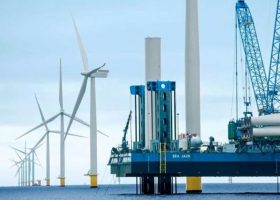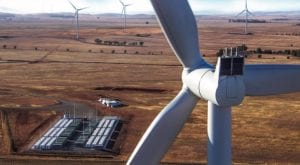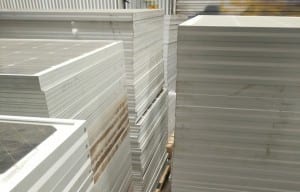A new Australian-based venture capital firm featuring ex Patagonia boss Rose Marcario is raising $50 million to invest in what it calls “regenerative” technologies, a step beyond “sustainability” and “net zero” into investments that can help restore damage to the planet and people.
ReGen Ventures is seeking $50 million and has already locked in $20 million, and has ambitions to mobilise $1 billion of capital into the regenerative space by 2030 from its twin headquarters of Byron Bay and San Francisco.
ReGen has an all-star cast. Apart from Marcario, who also sits on the board of EV company Rivian and plant based food company Meati, it also includes Will Coleman, who helped build the cleantech practice at Mohr David Ventures and later served as CEO of another emerging EV company Lucid.
The investment team features Mark Tercek, a former CEO of The Nature Conservancy, Renee Beaumont, former partner of Al Gore’s Generation Investment Management; and Georgia Vidler, a former head of product at Canva.
The founder and managing partner is Dan Fitzgerald – one of three partners along with Marcario and Coleman – who has worked led investment teams at Small Giants and Impact Investments.
“Sustainability is an insufficient goal. Regenerative technologies go well beyond incrementally reducing harm by actively restoring ecosystem health,” Fitzgerald says.
“This is the greatest imperative and opportunity of our lifetimes. Investing in regenerative technologies will radically change the world for the better and generate enormous value now and for future generations.”
Two start-ups already in its portfolio are Hide Biotech, a company that wants to “rethink fashion” and produces cow-free leather from food waste, and Seqana, which pairs artificial intelligence with satellite imagery to measure soil organic carbon (SOC) at a fraction of the current cost.
Fitzgerald explained the difference between sustainability and a regenerative approach in a recent blog post:
“By definition, the goal of sustainability is net-neutrality that enables the perpetuation of the current status quo,” he wrote.
“This is a fine aspiration if you are starting from a place of healthy balance, however, it is grossly insufficient if you are dealing with centuries of accumulated negative consequences.
“At its best, sustainability generates systems that are robust. Robust systems maintain ecosystem value at its current level but do not build additional ecosystem value and therefore do not undo previously accumulated harm.
“A regenerative approach goes well beyond sustainability to actively reverse accumulated negative effects. Regeneration restores, heals and contributes additional value to ecosystems.
“In fact, it expands the potential of a system. The result is accelerating positive feedback loops that create antifragile systems. Expanding on the medicine metaphor, regeneration is the process of getting well, versus not getting more unwell.”
Where are these ideas going to come from? The usual place, Fitzgerald says, such as universities, accelerators and other investors.
In some ways, the choice is getting more broad, because the dramatic falls in technology costs in recent years means that there are better, cheaper, and green alternatives to fossil fuels. “You don’t need to give a damm about the environment to make the right choice,” he told RenewEconomy.










